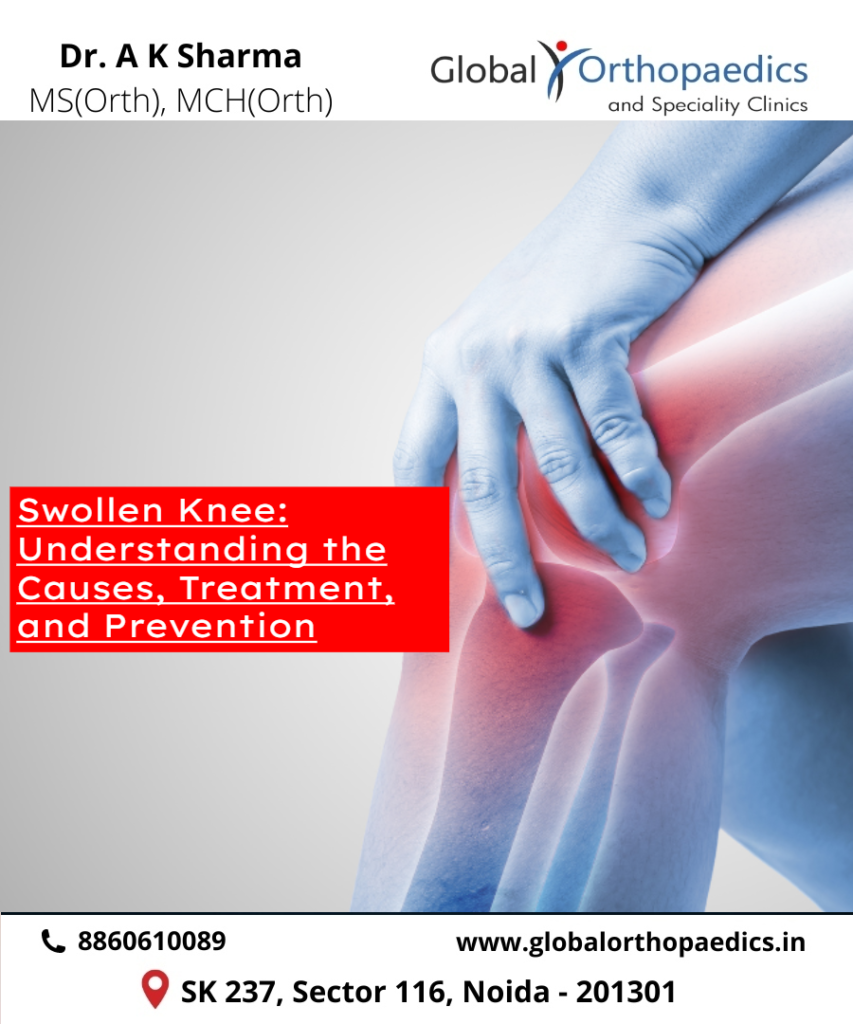A swollen knee can be a painful and debilitating condition that can significantly impact your daily activities. While there are various causes, understanding the underlying factors and seeking appropriate treatment can help alleviate discomfort and promote healing.

Common Causes of Swollen Knee
- Injury: Sprains, strains, fractures, or dislocations can lead to swelling and inflammation.
- Arthritis: Osteoarthritis and rheumatoid arthritis are common causes of chronic knee swelling.
- Bursitis: Inflammation of the fluid-filled sacs around the knee joint can cause swelling.
- Tendinitis: Inflammation of the tendons surrounding the knee can result in swelling and pain.
- Infection: Infections like cellulitis or septic arthritis can cause swelling and redness.
- Fluid Accumulation: Conditions such as gout or Baker’s cyst can lead to fluid buildup in the knee joint.
Symptoms of Swollen Knee
- Pain or discomfort
- Swelling or redness
- Limited range of motion
- Warmth to the touch
- Tenderness to the touch
Diagnosis of Swollen Knee
Your doctor will likely conduct a physical examination and may order imaging tests, such as X-rays, MRI, or ultrasound, to identify the cause of the swelling.
Treatment for Swollen Knee
Treatment for a swollen knee will depend on the underlying cause. Common approaches include:
- Rest: Avoid activities that aggravate the swelling.
- Ice: Applying ice to the affected area can help reduce inflammation and pain.
- Compression: Using a compression bandage can support the knee and reduce swelling.
- Elevation: Elevating the knee above your heart can help decrease swelling.
- Over-the-Counter Pain Relief: Medications like ibuprofen or acetaminophen can provide temporary relief from pain and inflammation.
- Physical Therapy: Exercises and stretches can help strengthen the muscles around the knee and improve mobility.
- Corticosteroid Injections: In some cases, injections can help reduce inflammation.
- Surgery: In severe cases of arthritis or other conditions, joint replacement surgery may be necessary.
Prevention of Swollen Knee
- Proper Warm-up: Warm up before physical activity to prevent injuries.
- Strengthening Exercises: Regular exercise can help strengthen the muscles around the knee and reduce the risk of injury.
- Maintain a Healthy Weight: Excess weight can put strain on the knees.
- Protect Against Injuries: Wear appropriate protective gear when participating in sports or activities.
If you experience a swollen knee, especially if it is accompanied by severe pain, redness, or fever, it is important to seek medical attention. A qualified orthopedic doctor or orthopedic surgeon in Noida can accurately diagnose the underlying cause and recommend appropriate treatment. Visit our clinic: Global Orthopaedics and Speciality Clinics at SK 237, Sector 116, Noida.


